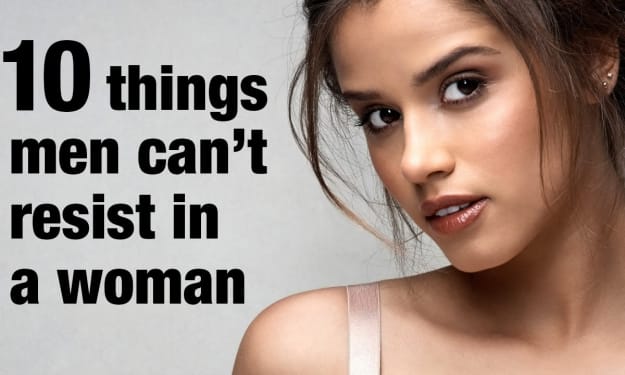Stop Being Socially Awkward - 8 Behaviors That Make You Look Weird
Ever wonder if people think you're socially awkward or weird? We've all had moments where we felt embarrassed or uncomfortable around others. No one is perfect. But if you’re not careful enough, you might end up doing things that make others perceive you as socially inept! Turns out, there are many subtle things people do that can reveal their social incompetence. Some get away with it, while others think it's normal or don't even realize they’re doing it. Here are 8 behaviors that can make you come across as weird or socially awkward.

Stop Being Socially Awkward - 8 Behaviors That Make You Look Weird
Ever wonder if people think you're socially awkward or weird? We've all had moments where we felt embarrassed or uncomfortable around others. No one is perfect. But if you’re not careful enough, you might end up doing things that make others perceive you as socially inept! Turns out, there are many subtle things people do that can reveal their social incompetence. Some get away with it, while others think it's normal or don't even realize they’re doing it. Here are 8 behaviors that can make you come across as weird or socially awkward.
Number 1 - Too Much or Too Little Eye Contact Eye contact is a form of nonverbal communication that significantly impacts social behavior and it can be interpreted as either too little or too much depending on the context. If you don't look someone in the eye when speaking to them, it can come across as unfriendly or uninterested. Conversely, if you stare at them, they will likely feel uncomfortable and intimidated by your behavior. The ideal amount of eye contact is somewhere between the two extremes. Enough to make the other person feel comfortable and at ease, but not so much that you're fixated on them for the entire conversation.
Number 2 - Too Much or Too Little Interpersonal Space Interpersonal space is the area that people maintain between each other while interacting. The amount of interpersonal space that's appropriate can vary by culture and depend on the context and relationship. But in general, taking up too much or giving too little interpersonal space can make you come across as weird. It’s best to give others at least 2 to 4 feet of personal space. If you need to get closer for a conversation about something specific like getting help figuring out how something on your phone works, that's fine as long as you don't forget to step back after your business is done. You should also avoid having too much distance between yourself and the other person as this could be perceived as standoffish.
Number 3 - No Filter Having a personal filter allows you to keep things you want to say in your head and only reveal them after you've thought about how they'll be perceived by others. Why should you do this? Because a lack of restraint can lead to uncomfortable moments and make things somewhat awkward. For example, telling someone that they could stand to lose some weight or that their outfit looks terrible can be offensive, even if it’s true. So practice being mindful of your words before speaking.
Number 4 - Inability to Tell or Take Jokes Well Humor helps keep social interactions running smoothly. Jokes are quick, casual, and excellent at breaking the ice and connecting with others. They're also a great way to show off your wit. But this can backfire if you're not careful! If your jokes don't fit in with the conversation or come off as too offensive, they won't go over too well. Or if you're the kind of person who can't take a joke or worse yet, you tend to be too sensitive about them, you will seem defensive or easily offended. This can make others uncomfortable around you because they won’t know how to respond or what side of your personality they might see the next time they meet you.
Number 5 - Self-Disclosure - Too Much or Too Little Self-disclosure is the sharing of personal information about yourself with others. And it should be a two-way street. You tell someone something about yourself, and they tell you something about them. The more open and honest each person is in this exchange of information, the better chance there is for creating a deeper sense of connection. But it’s important to remember that the key here is balance. If all you ever talk about are personal things, it can be overwhelming and can even come off as creepy. Similarly, if you never reveal anything about yourself or your interests, then others will have less incentive to build a relationship with you.
Number 6 - Lack of Relevance Perhaps the most obvious way you might make yourself look awkward is by saying things that are not relevant. This means that what you’re saying has no connection to what they’re saying which can make the other person feel as though they're not being listened to. If someone tells you that they just bought a new car, don't respond with how much your dog loves road trips. Unless the person mentioned that their dog loves going for car rides, it's not relevant! It's crucial to consider how your words relate to what the other person has said. This will help avoid awkwardness and ensure that everyone feels like they've been heard throughout the conversation.
Number 7 - Entering and Exiting Interactions Abruptly If you tend to walk into a conversation in mid-sentence, interrupt someone who is talking, or leave a conversation before it's finished, you may not realize it, but these are all awkward behaviors that make you look weird. If someone is talking and you have something to say, wait until they finish their thought before speaking up. And don't leave conversations abruptly, especially if others are still engaged! People not only mistake these exits for rudeness, but also take offense if they feel ignored or cut off mid-sentence. Also, if someone is trying to end the interaction with you by making excuses or giving off nonverbal signals like looking around or away from you, instead of rambling on, take your cue and politely end the conversation.
Number 8 - Lack of Using Back-Channel Cues Back-channel cues are the little things people use in conversations to indicate that they're paying attention and interested in what the speaker is saying. The most common back-channel cues include nodding your head up and down, smiling, leaning forward toward the person talking, making eye contact while they speak, and occasionally saying "uh-huh" or "mm-hmm" as an indication of understanding what's being said.
If you don't use these types of back-channel cues during a conversation, this tends to confuse the speaker because they don't know if their message is getting across effectively enough for them to continue speaking. At the end of the day, the way you conduct yourself matters. It can make or break your chances of getting hired, starting a relationship, and making friends. The best way to avoid social awkwardness is to be aware of your own behavior and how it might be coming across to others. The good news is that with a bit of effort, you can discern the things that make you look weird or socially awkward and correct them. It's all a matter of learning, adapting, and growing as a person!






Comments
There are no comments for this story
Be the first to respond and start the conversation.